Main section
Tabs Navigation
Tabs
2023
Grants awarded 2023
New Forest Heritage Trust
The award of the Resilience Grant to the New Forest Heritage Centre has been a great boost and this recognition has brought a renewed appreciation of the value and importance of their collections to both the team and their other stakeholders. It will remove the two major issues which currently restrict their efficient delivery of services and increase access for their customers, including the opportunity to reopen the collections to the public on a limited basis which ceased in 2019, making the collections available in the future to both the local community and their large number of visitors.
The first issue it will address is to replace the number of systems and datasets used to record the archives, museum, and library collections with one coherent finding aid. This will allow more and faster access for those inputting information and those seeking to search the catalogue and provide a new streamlined service for both their existing and newly recruited volunteers and users.
The second major long-term benefit will be the location, security, and environmental improvements in the storage of their mixed collections. The grant will enable the collections to be moved into one central secure repository with a defined workspace for the team and volunteers. It will also enable them to repurpose a room which will be used by researchers and open to the public on a regular basis which has not been possible since 2019. The mixed nature of their collections currently includes an amount of ephemera which will be developed into a comprehensive handling collection available to all their visitors and will be housed in this new location.
The room will also be a flexible space available to local groups, house minor exhibitions and create income through meeting room bookings. These two projects will radically improve collections care, security, access and provide new avenues for income generation. These are short/medium term projects in advance of implementation of the Master Plan for the Centre which is currently underway. The Resilience Grant is a springboard for the success of the Heritage Centre, and they look forward to sharing their journey over the coming months.

Image credit: New Forest Heritage Trust
Dig Media
Dig Media are custodians of internationally significant, culturally valuable archive material. Their assets include unique video footage of cultural giants including The Beatles, Pink Floyd and Salvador Dali among many, and a huge collection of LGBTQ+ memorabilia from the archive of Jack Henry Moore, a key 1960s counterculture figure and pioneering video artist. This project seeks to digitise heritage and develop shareable cultural content to populate their digital platforms, using Artificial Intelligence (AI) to repair, restore and enhance audio and video content. The funding from The National Archive Resilience Grant ensures the sustainability of their business so they can continue to preserve the archive for future generations, whilst exploring new ways of storytelling and engaging with heritage, including through Augmented Reality (AR). Also allowing them to provide training to young people and volunteers who will develop skills in archiving, digitising and restoration, developing the next generation of potential archivists and heritage enthusiasts.
Simon Marsland, Director of Dig Media Ltd said: “We’re grateful to The National Archives for awarding us this Resilient Grant Funding. It allows us to continue to restore important cultural heritage for future generations to enjoy, as well as ensuring the sustainability of our business through the funding of essential activities.”
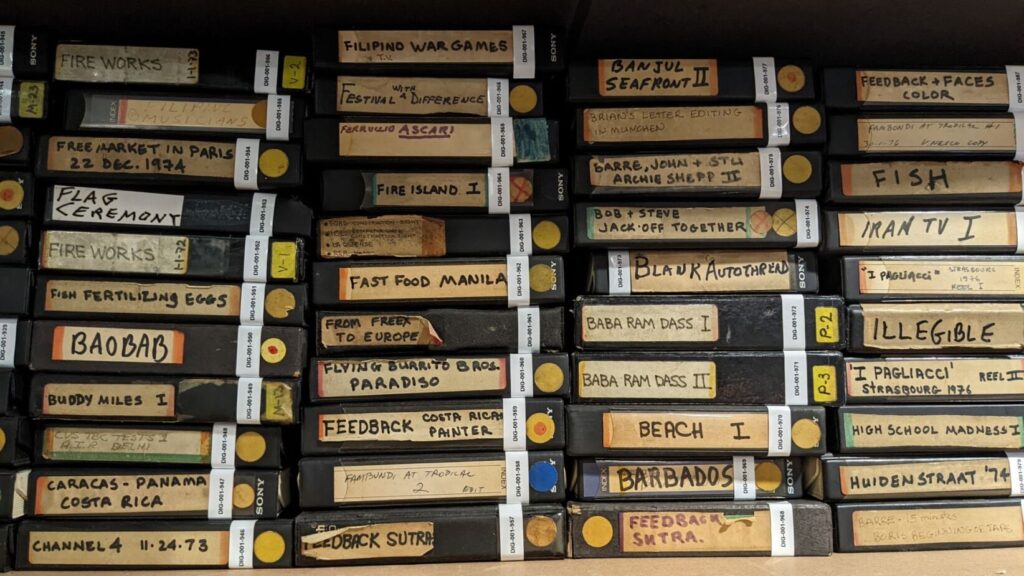
Image credit: Dig Media
Doncaster Council
The project will employ a consultant to work with the City of Doncaster archives on a range of activities targeting gaps in processes for managing born-digital material. By establishing new partnerships and fostering collaboration between council departments as well as supporting the existing network, South Yorkshire Archives Partnership (SYAP), the project will deliver many practical benefits to the service including training, policy, and skills development, creating a robust foundation for digital preservation.
Nick Stopforth, Head of Heritage and Culture, City of Doncaster Council said: “The funding from The National Archives will now enable City of Doncaster Archives to respond to the challenges and opportunities of working with born digital records, in new ways and with significance to the service. With the high-quality team overseeing this work, I would envisage that the learning, best practice and benefits will be shared with the sector. It is my ambition that the team and service turn a curve and become exemplars in this area of focus, and with an ability to articulate and promote the intrinsic value of born digital and contemporary collecting. The project will directly benefit people in Doncaster, by ensuring we have solid foundations for the future of our customers’ engagement and learning with our archives, in ways which are modern and meaningful, and I am therefore very grateful to The National Archives for this funding.”
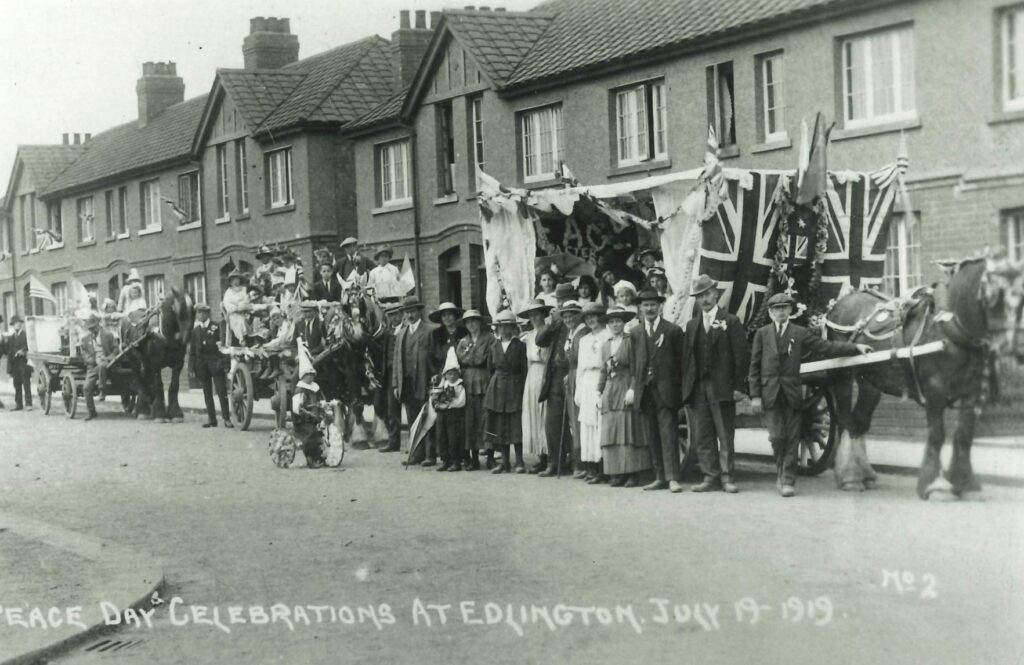
Image credit: City of Doncaster Council
Wolverhampton City Archives
Wolverhampton City Archives is pleased to have been awarded £3,600 in grant funding by The National Archives’ Resilience Fund. This funding will contribute towards developing a training package, which will partly be virtual and partly onsite, for staff across their Customer Engagement and Registrars Service.
The package will teach the basic fundamentals of providing effective customer services at Wolverhampton City Archives, as well as being included as part of the induction process for new members of staff.
This training means that there will be a larger pool of staff with the requisite knowledge who can be called on in times of absence and vacancies. City of Wolverhampton Council’s Director of Strategy, Charlotte Johns, said: “We are delighted to have been awarded this grant funding from The National Archives’ Resilience Fund for our City Archives service to update and roll out training to establish greater future resilience and an even better experience for users.”
2024
Grants awarded 2024
Glasgow Zine Library
Glasgow Zine Library is a community archive and zine library based in Govanhill, Glasgow, established in 2018. They have a growing international collection of over 1000 zines (self-published magazines). GZL also hosts a blended online/offline programme of workshops, professional and artistic development opportunities, community meals, film screenings and much more.
This project will increase organisational long-term resilience by digitising and preserving their archive of 4,000+ zines; train their growing zine archive network, building sector skills, resilience and inclusivity; and enrich their collection by capturing marginalised heritage using intangible heritage skills in zine making.
“Glasgow Zine Library is delighted that the National Archives are supporting our project, Resilient Zine Archives in Scotland! Zines are self-published DIY magazines used to share resources and creativity, and are often the only records of subcultures, countercultures, and social justice movements. This project will build our archival resilience by digitising and preserving our collection of 4,000+ zines. We’ll also train our growing zine archive network, building sector skills, resilience and inclusivity; and we’ll enrich our collection by capturing marginalised heritage through zine making workshops.” Nic Munogee, Archives and Collections Manager, Glasgow Zine Library

Glasgow Zine Library
Greater Manchester Archives
Greater Manchester Archives and Local Studies Partnership (GMALSP) is a network of 10 local authority archives who work together to preserve and promote the county’s rich heritage and archives. The National Archives have awarded a Resilience Grant of £13,622 which will enable the partnership to begin to develop a digital preservation programme by purchasing the resources required to understand and process born digital material acquired over time and held on many different storage formats.
The award will fund ‘Greater Manchester Digital Kits’ for each of the archives involved to use. The project will highlight that digital preservation isn’t something that is done in the same way across services through the creation of tailored workflows and trialling multiple free open-source software with the help of allocated staff time for training.
Philip Cooke, Libraries and Archives Lead, Manchester City Council said “We are delighted that The National Archives have awarded this Resilience grant to the GMALSP Digital Preservation project. It’s a significant leap forward on our journey to future-proof our ability to capture and preserve born-digital records for posterity. It will allow us to acquire knowledge and expertise which our network of GM Archives partners can all share and use to build our understanding and skills in digital preservation.”
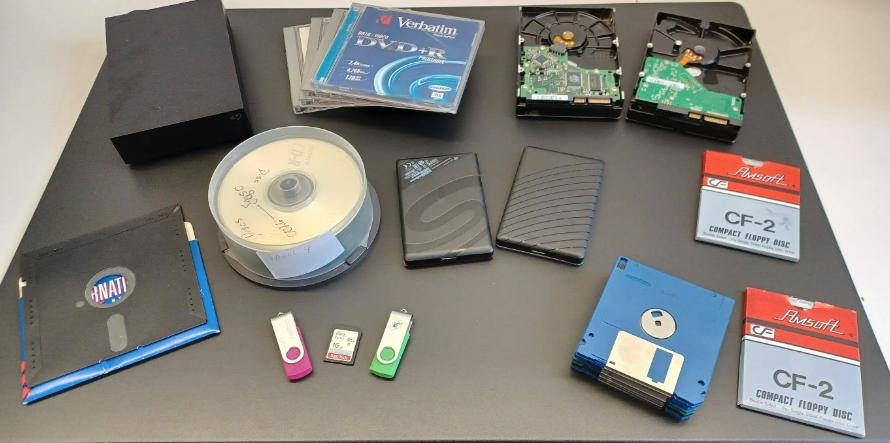
Greater Manchester Archives
The Methodist Church
From Shetland to Jersey there are thousands of Methodist churches that hold historic records, and which are continuing to create records that document the story of the church and wider local community. These records are cared for by a network of volunteer archivists. The Resilience Grant from The National Archives will enable the Methodist Church in Britain to commission comprehensive guidance to support these volunteers and give them the confidence to manage these records effectively.
Mary Ellis, Liaison Officer for Methodist Archives for The Methodist Church in Britain said: “We are very grateful to The National Archives for the award of this grant. Our volunteer archivists are a dedicated and committed group of people and this funding will enable us to develop new guidelines and resources to support the valuable work that they do to ensure that the records of the church are well-managed and that records of archival value are deposited with local archive services. We are looking forward to developing these resources and collaborating with colleagues in the local archive sector to deliver high quality training materials. By ensuring that our archives are preserved, the project will benefit all those who have an interest in Methodist history, from academic researchers to family historians.”
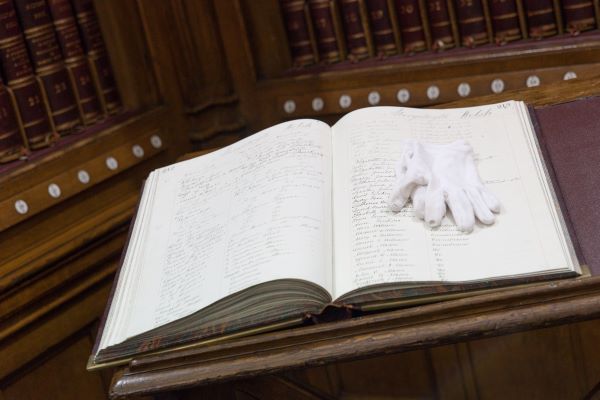
Image credit: Tim Eccleston (TimE Photography)
The Media Archive of Central England
The ‘Sustaining Screen Heritage’ project seeks to enable the Media Archive for Central England (MACE) to build resilience through the development of sustainable solutions for its digital infrastructure. The programme of work aims to futureproof MACE’s core IT and digital operations and increase independence and financial resilience by adopting and migrating to economical, cloud-based systems.
Chair of MACE’s Board of Trustees, Sue Malden, said: “We are delighted to be awarded this Resilience grant by The National Archives. MACE plays a critical role in the archival ecosystem of the Midlands, working in collaboration with numerous organisations and individuals across our region to support the preservation of and access to unique and significant audio-visual records. This grant is essential in enabling MACE to build a sustainable future and ensure we continue to serve communities throughout the Midlands.”
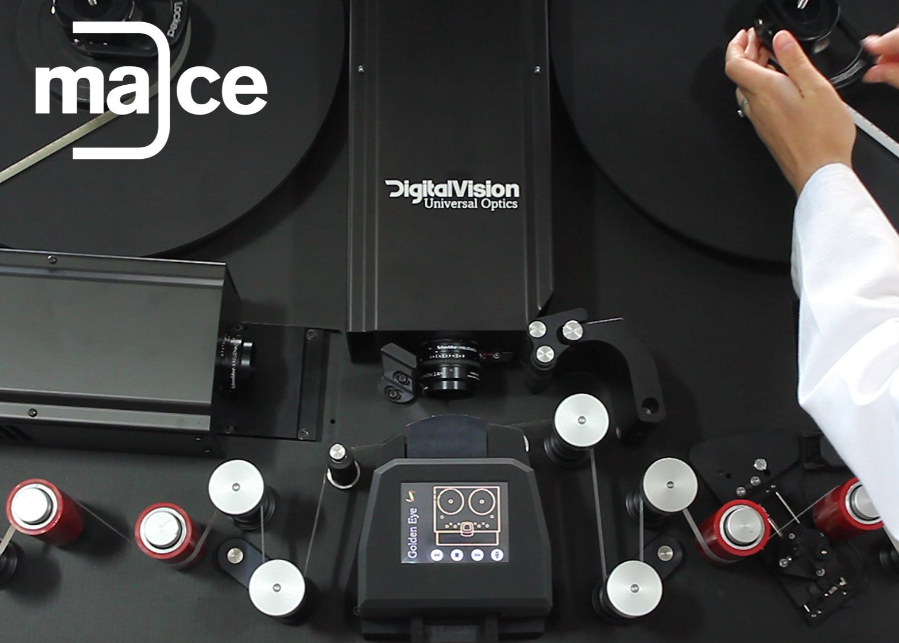
The Media Archive of Central England
Sutton Archives
Sutton Archives, part of London Borough of Sutton’s Cultural Services, is delighted to have been awarded a Resilience Grant of £20,000 from The National Archives this month. The Council will be leaving its current civic offices site in the coming years and this funding will help with the safe transition of the borough’s existing archives to their new home on Sutton High Street.
The grant will allow the procurement of a specialist feasibility assessment on proposed sites for both a new archive store and search room in the new civic buildings. Consultants will ensure that requirements for the fabric and environment of the building are met and safeguard the provision of a secure and appropriate home for the archive’s future.
Allocated funding for improved CMS infrastructure will also enable improved access standards for their online catalogue to meet the continuing and growing needs of their residents, wider users and stakeholders.
Commenting on Sutton’s successful funding bid, Dr. Imran Choudhury, Strategic Director for Public Health said:
“At a time when local government budgets are stretched, this grant will help us not only secure the physical future of our archive collections, but will also lay the foundations for a sound future digital backbone, benefitting access for our users and our staff with collections management. This funding is a big step towards improving the resilience of our archives. We would like to thank TNA for recognising the importance of this work in Sutton.”
